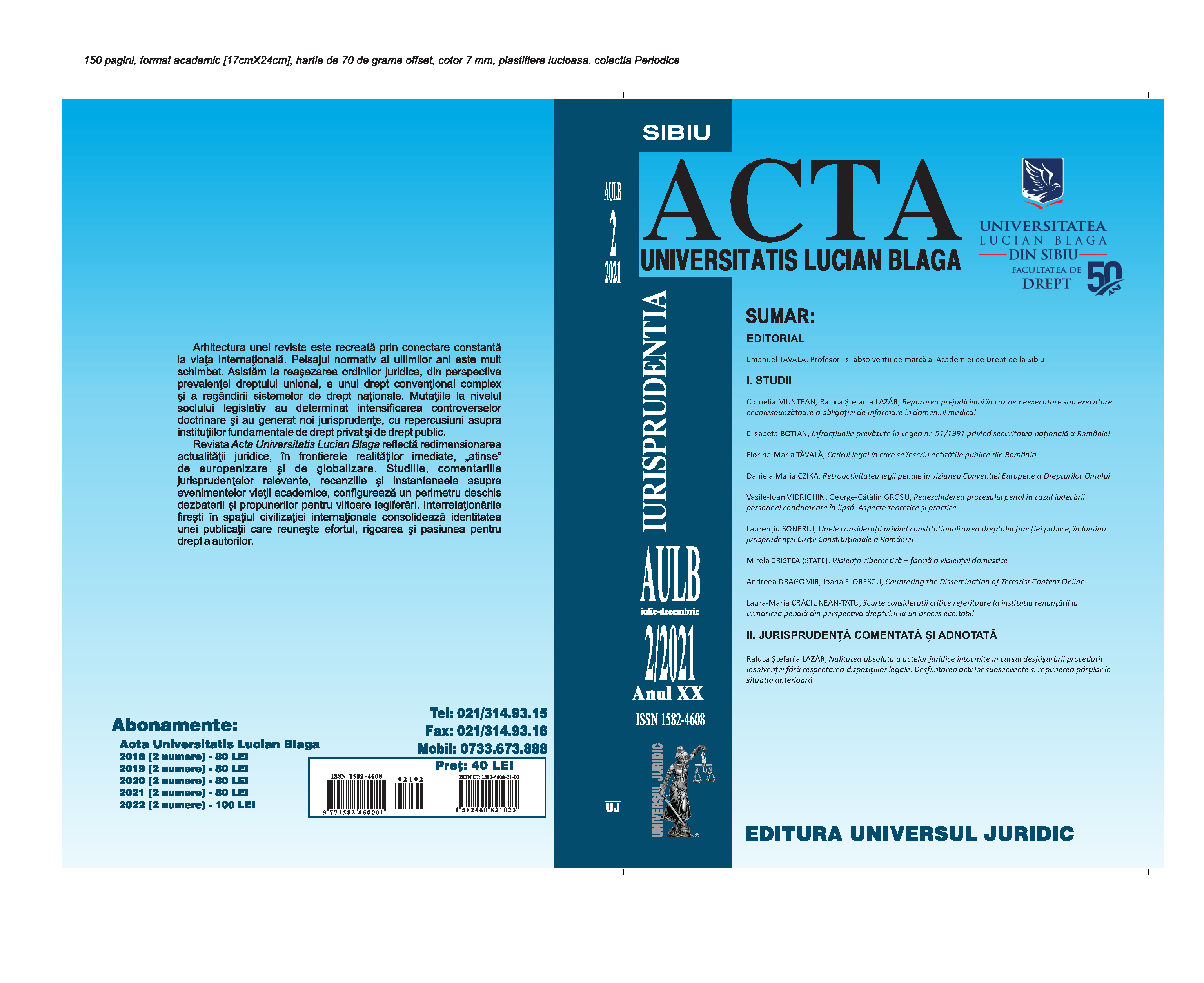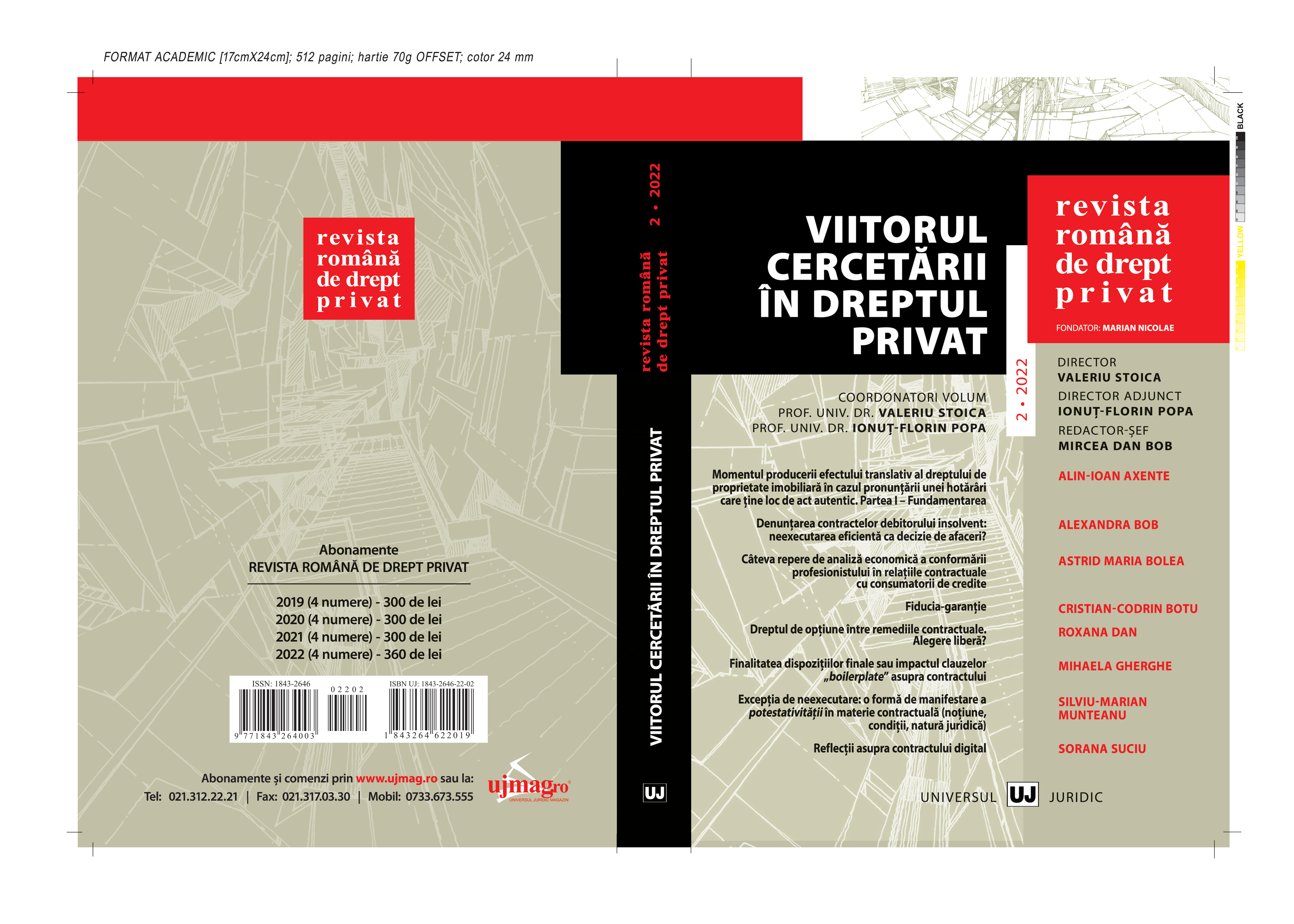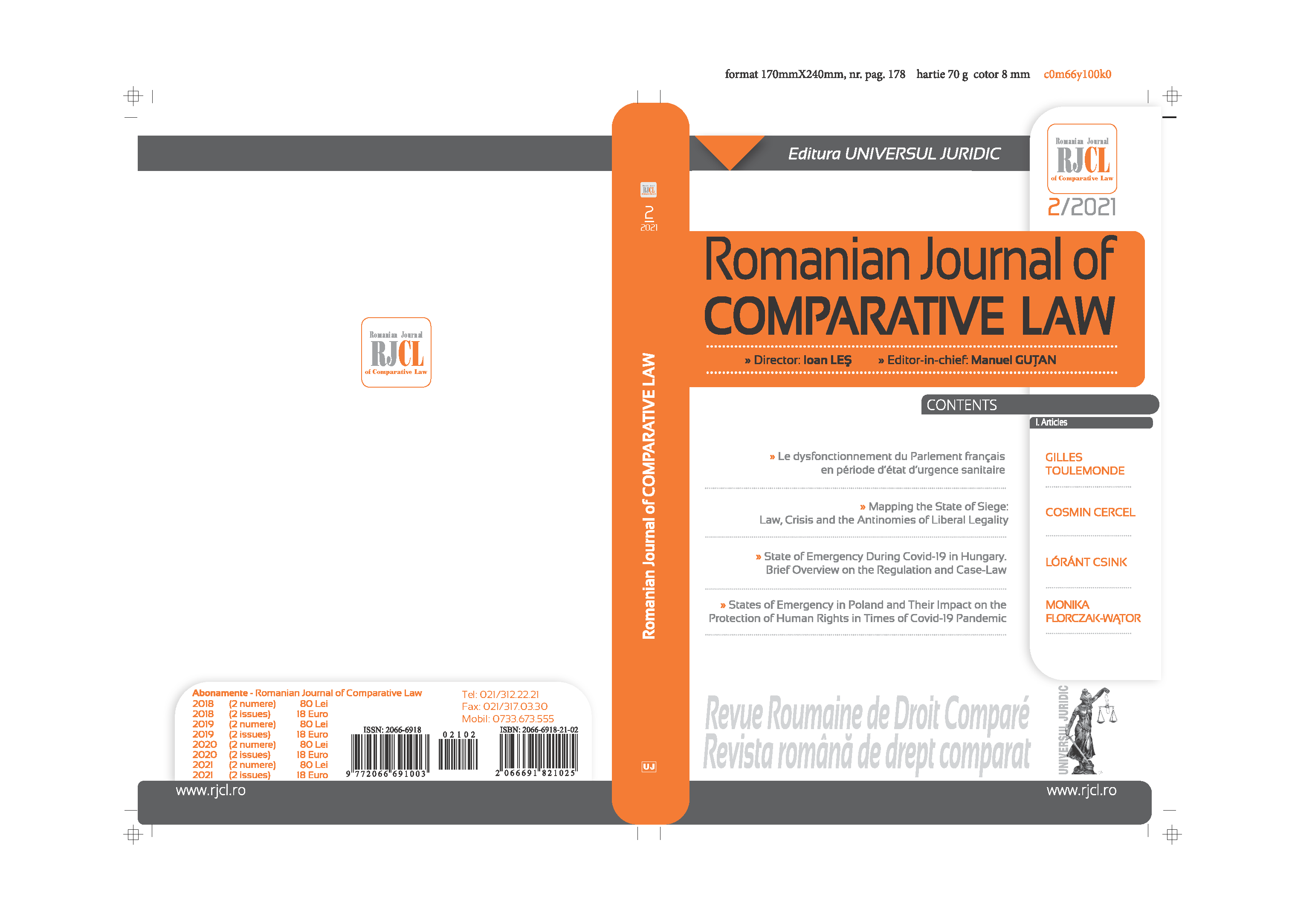Author(s): Alin-Gabriel Oprea / Language(s): Romanian
Issue: 02/2022
The article aims to examine, from procedural and substantial provisions’ perspective, whether the inalienability and, implicitly, the impossibility of forced pursuit resulting from the conclusion of a bilateral promise of sale and purchase of immovable property, recorded in the land register in compliance with all the legal conditions, can be opposed against criminal justice authorities which, at a later stage, would like to take precautionary measures in relation to the same property. If the answer is affirmative, any precautionary measure would, in the case at hand, be unlawfully imposed, so that could be challenged under Article 250 para. (1) of the Code of Criminal Procedure. The answers provided based on the relevant regulations, doctrine and case law, start from a recent decision of the Bucharest Tribunal, Criminal Division, whereby the preliminary chamber judge found that previously, the promise of sale-purchase was noted in the land register, so that he admitted, based on the provisions of Art. 250 of the Code of Criminal Procedure, the appeal filled by the future purchasers against the order of the Prosecutor’s Office of the Bucharest Court of Appeal, by which the precautionary measure had been imposed on the property whose sale had been promised. In the author’s view, there are sufficient arguments for a change in the outdated view according to which the effects of precautionary measures instituted by criminal justice authorities are produced erga omnes, not only in relation to the subjects of criminal procedural legal relations, and these measures would have absolute priority and, moreover, they would block any precautionary or even enforceable proceedings initiated by third parties in relation to the same assets, even if they were prior to the imposition of the measure. In reality, the question of anteriority is resolved in relation to the moment when the conditions for publicizing the inalienability clause are met and the moment when the creditors’ claim arises. It should also be pointed out that, in all cases, the question of the enforceability of the inalienability clause against creditors arises only to the extent that their claims fall due before the expiry of the period of inalienability. However, as has been held in the case-law of the criminal courts, in criminal proceedings, a claim arising from a damage becomes certain, liquid and payable only when the judgment has become final, since the court then definitively establishes the defendant’s liability for the act and the actual damage. The conclusions presented in the content of the article are valid the more so as in the case of the precautionary measures taken by the criminal justice authorities, the most that can be discussed about the temporary impossibility to sell the property and not about its forced pursuit.
More...



